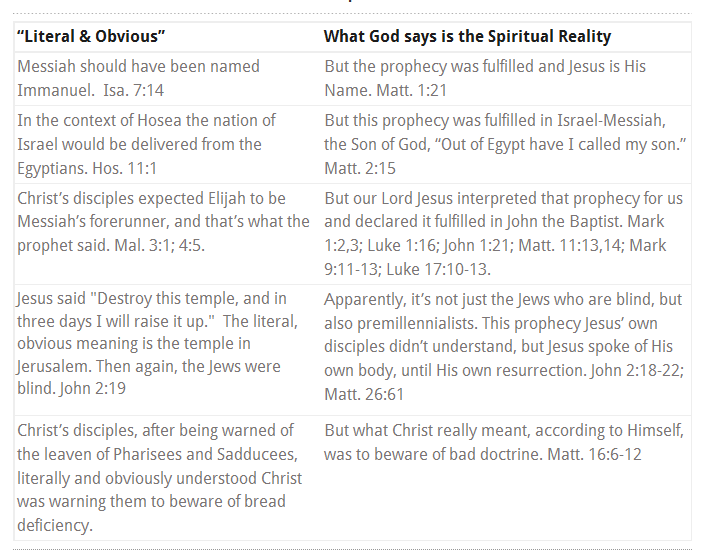Rambling...
Riddlebarger points this out in his first lecture in a series found on his blog; a literal hermeneutic is just for show in Dispensationalism. Our hermeneutic principle should be 'the analogy of faith' or 'scripture interprets scripture' and not some artificial, semi-imposed literalness.
One example would be the '1,000 year reign of Christ.' The reign of Christ is not limited to 1,000 years.
Another would be the binding of Satan; if Rev. 20 is literal and the chain is literal how does a literal chain bound a spiritual being?
Are the locusts real, literal locusts or helicopters as Hal Lindsay suggested?
Another problem for me personally when studying this issue was Dan. 9. The language is clearly covenantal, it is the Messiah who is cut off, He is the one who makes the covenant. Dispensationalism teaches this covenant in Dan. 9:27 was made by Antichrist even when, literally speaking/using the analogy of faith, the one making the covenant throughout Dan. 9 was God.
Amil for example sees Christ in all of scripture. Christ fulfills the old covenant, Christ is the Temple, Christ is our Sabbath rest, Christ is the seed of Abraham and we in Christ receive the promises, etc. We look for nothing else in this life or the next except Jesus Christ.
Break times over,
jm

